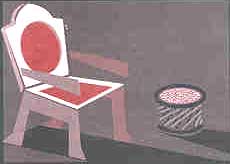First food: business of taste
Good Food is First Food. It is not junk food. It is the food that connects nature and nutrition with livelihoods. This food is good for our health; it comes from the rich biodiversity of our regions; it
Good Food is First Food. It is not junk food. It is the food that connects nature and nutrition with livelihoods. This food is good for our health; it comes from the rich biodiversity of our regions; it
RICH HARVEST: The Minneapolis-based Cargill Inc, the biggest private firm in the US is eyeing the rapidly growing Asian food market. It plans to invest US $1.5 billion over 10 years, mainly in
Pakistan will soon benefit from an interestfree US $140 million loan from the Asian Development Bank to improve its drainage system. Under the aegis of a national drainage programme, problems of
With garbage piling mountain-high in Nepal, countries like Russia are now taking up the cause of cleaning up the awe-inspiring Mount Everest. Oleg Fedorov, a Russian ecologist believes that it is
The United Nations Industrial Development Organization, UNIDO, will now have to do without its principal paymaster - the United States. At the UNIDO general conference held in the first week of
Microsoft is in trouble for its money-spinner software, Windows 95. Investigations are on against the world's largest software company, about claims that its latest package causes deliberate
More blood is likely to flow in Nigeria. Come 1996, and 19 more comrades of the executed Ogoni leader Ken Saro-Wiwa will go through the same mockery of justice, and probably end up in the gallows.

Its high time the panchayati raj institutions in India reviewed their actual role in spelling out developmental processes
The state of forest report 1995 is the fifth assessment of the forest cover of the country pertaining to the period 1991-93. It is for the first time that the data obtained from the Indian Remote Sensing Satellite has been used by the Forest Survey of India for this assessment.
Though conservation policies have to some extent succeeded in stemming the environmental destruction being caused by rampant industrial and urban growth, in India, these efforts have also had the unintended consequence of creating enemies of the very people who have historically been the strongest conservationists.
Fencing the Forest: Conservation and Ecological Change in India's Central Provinces 1860-1914 draws on archival and printed sources to shed new light on the ecological dimensions of the colonial impact on South Asia. The changing responses of rural forest users and the fortunes of the land they lived on are the key themes of this study.